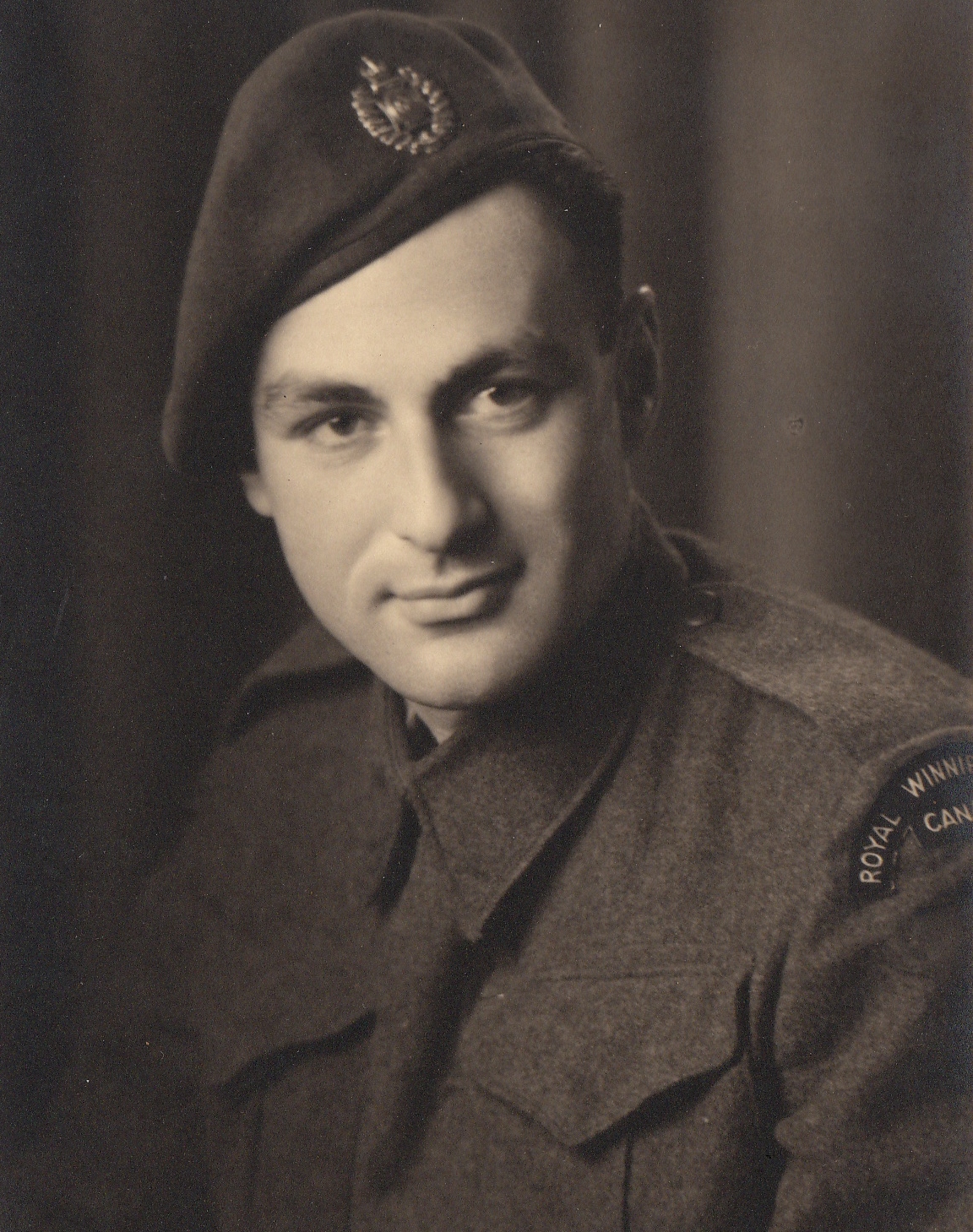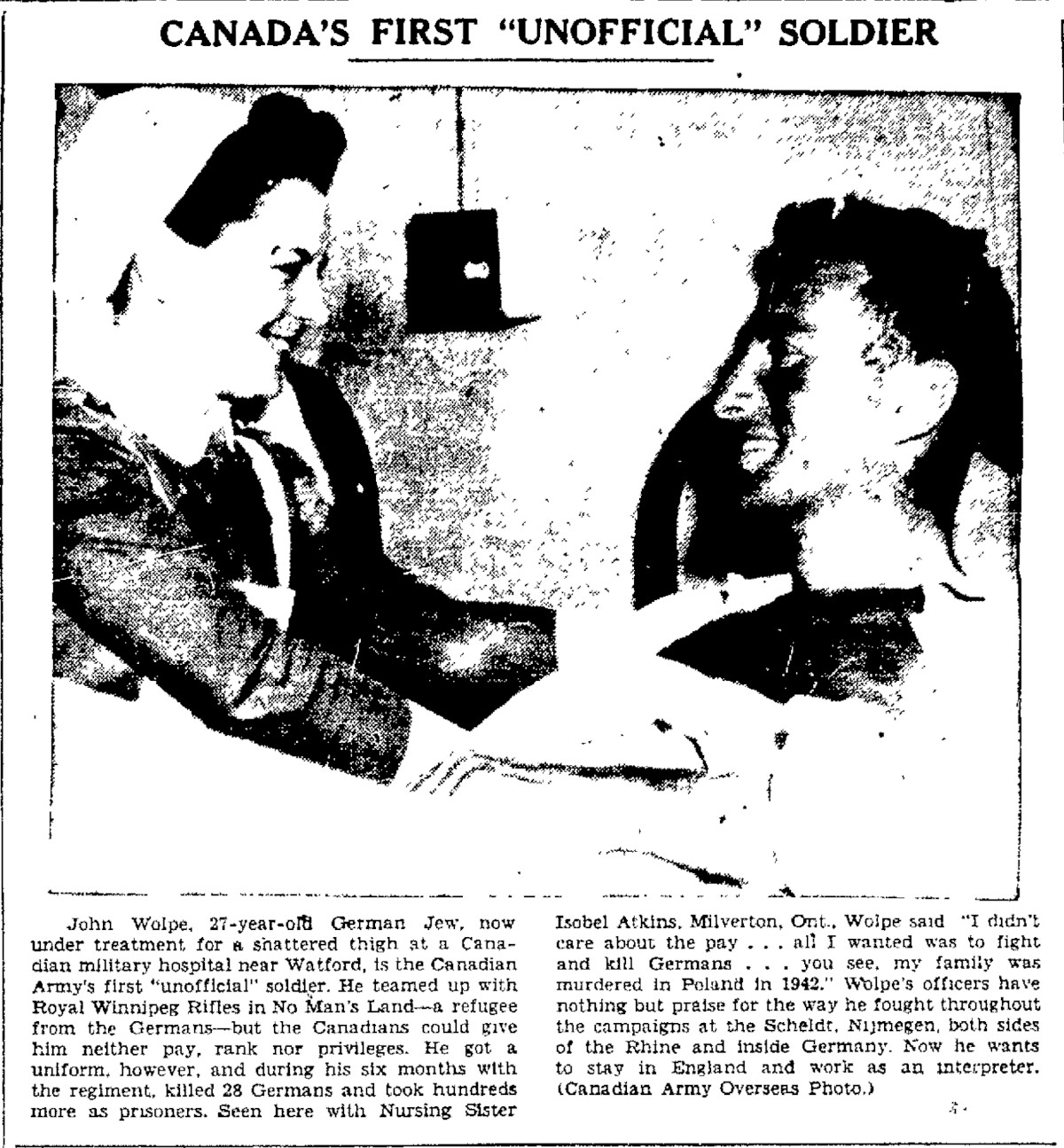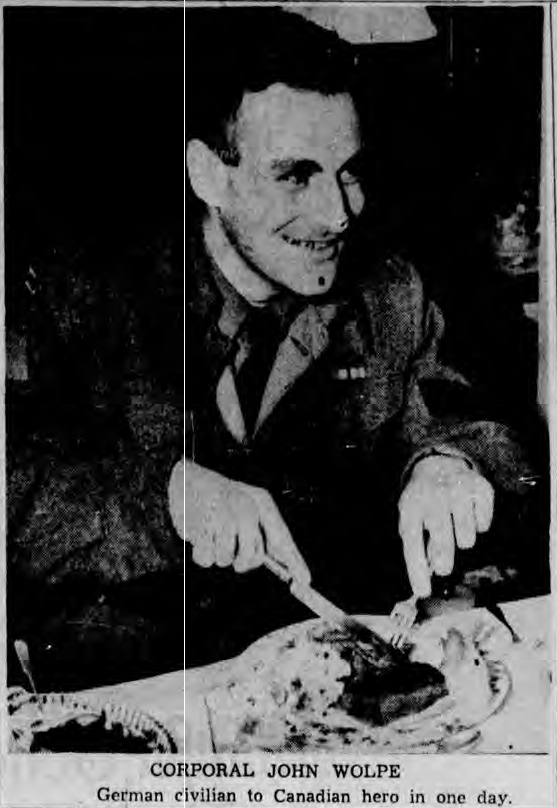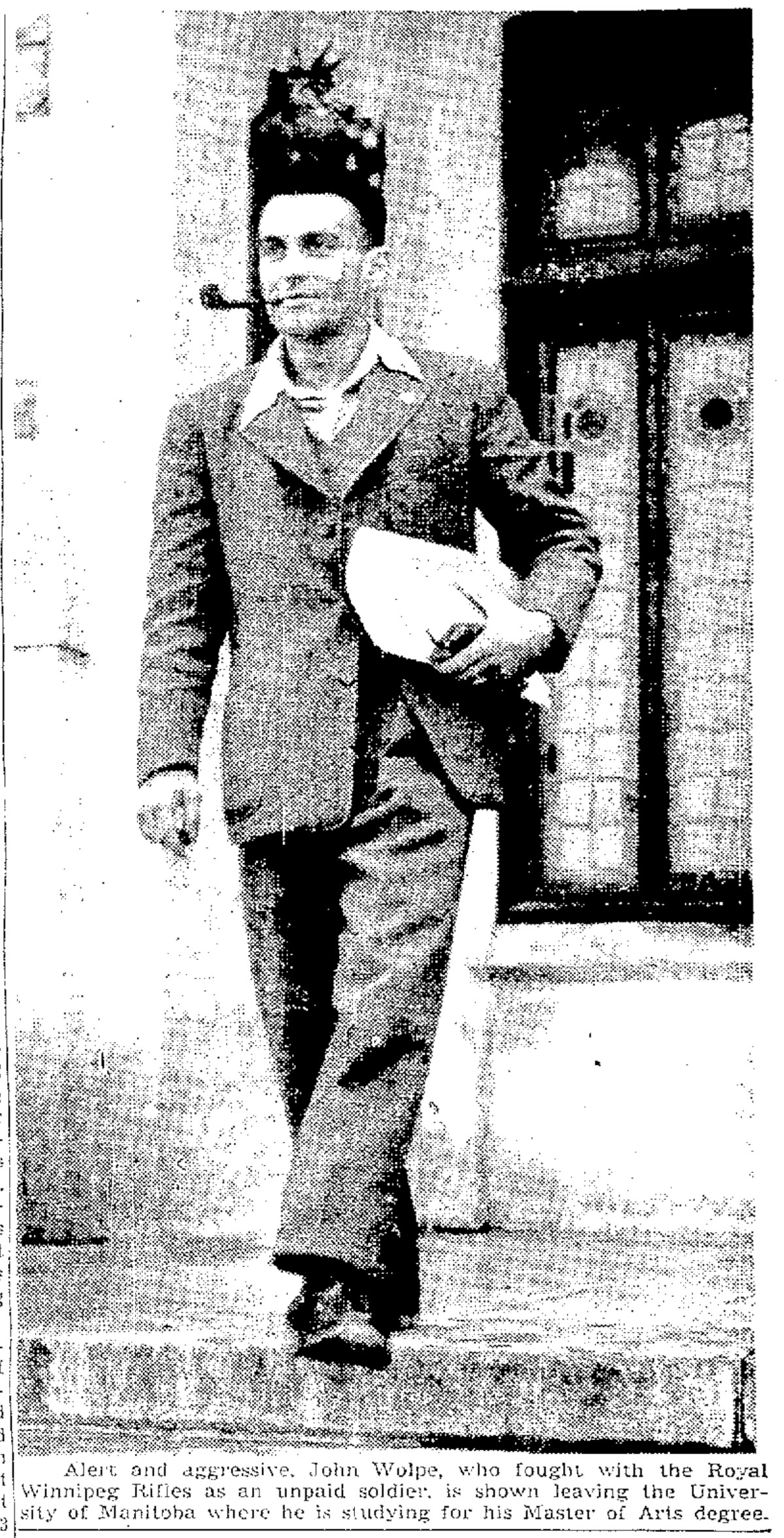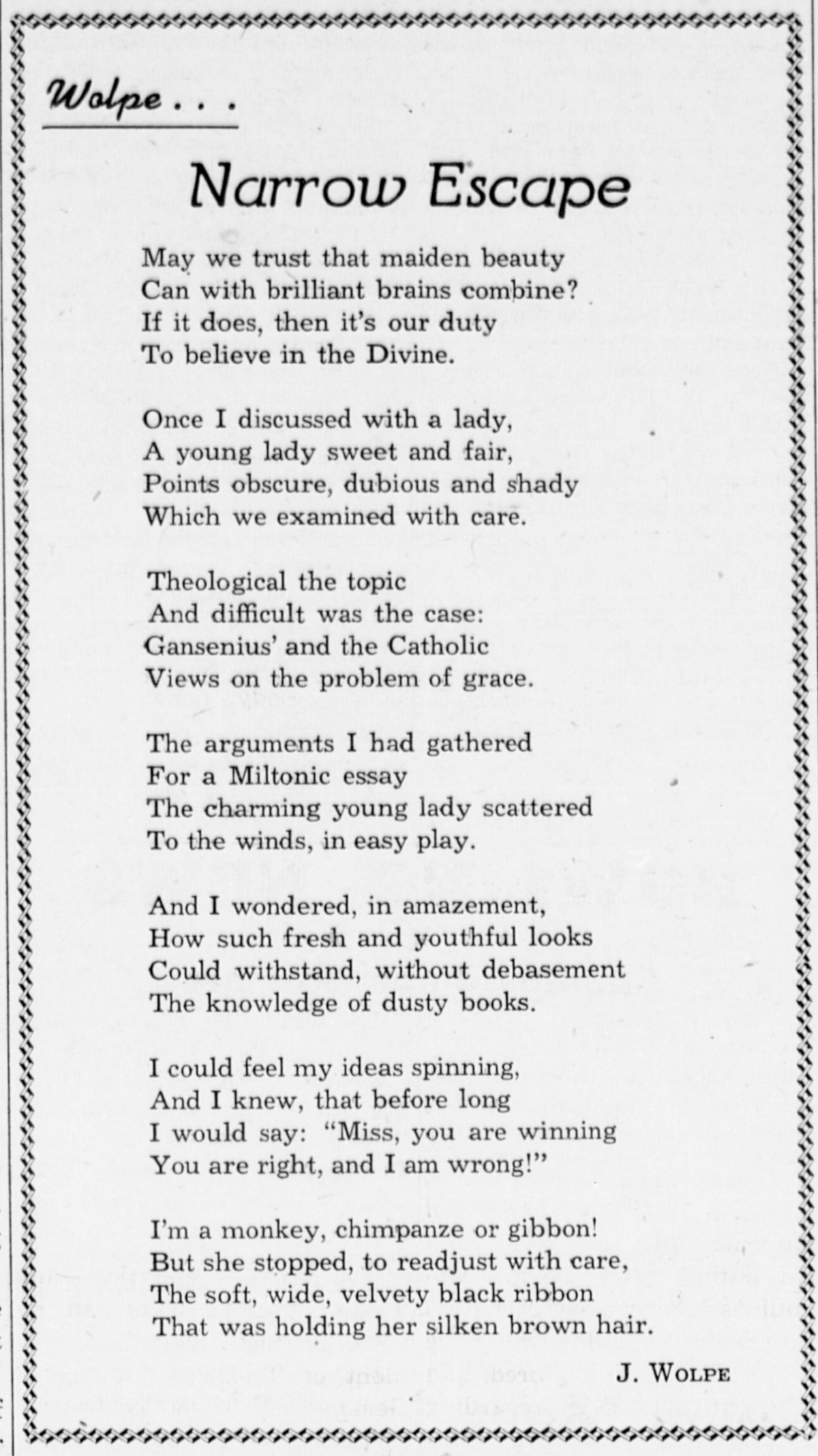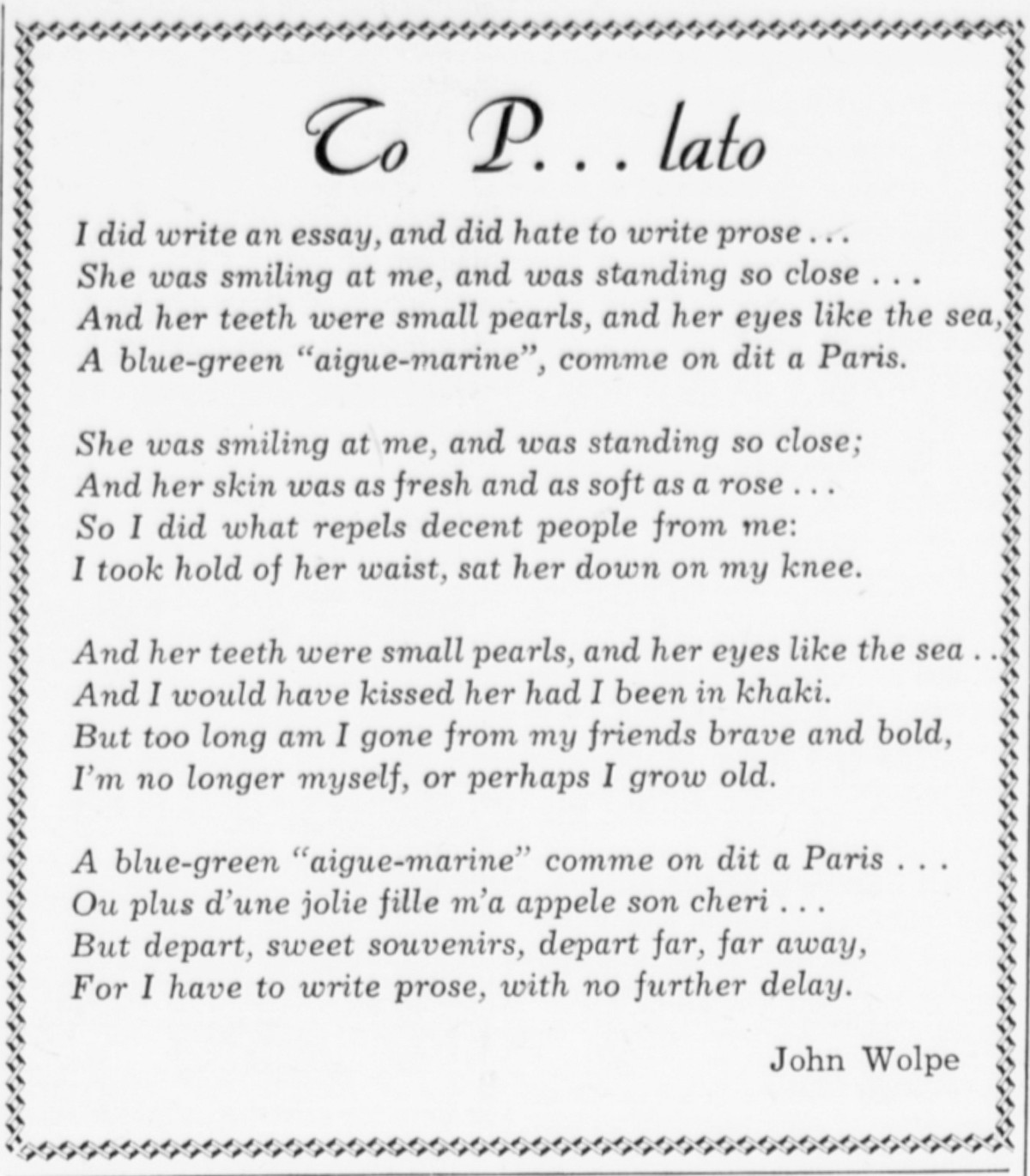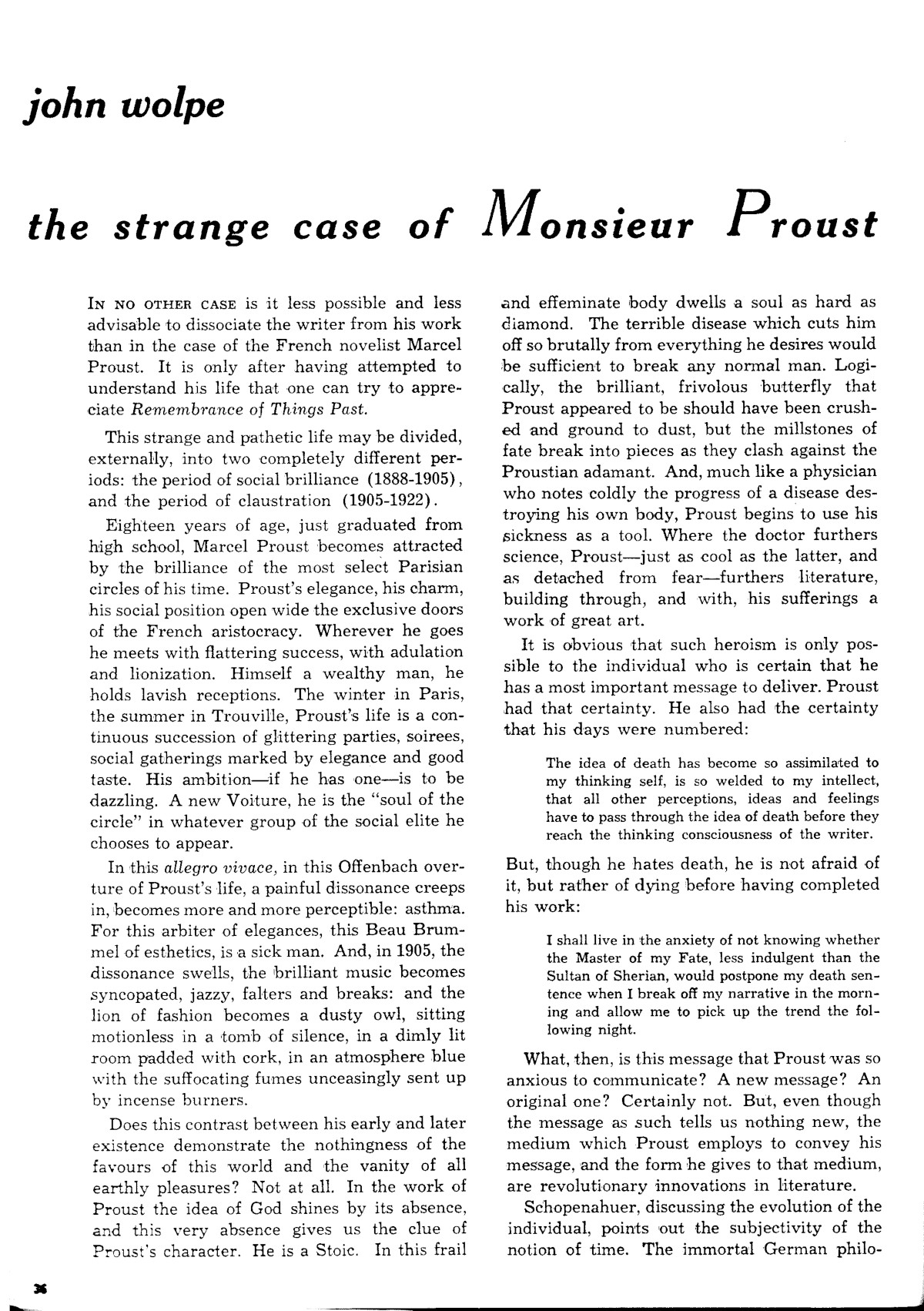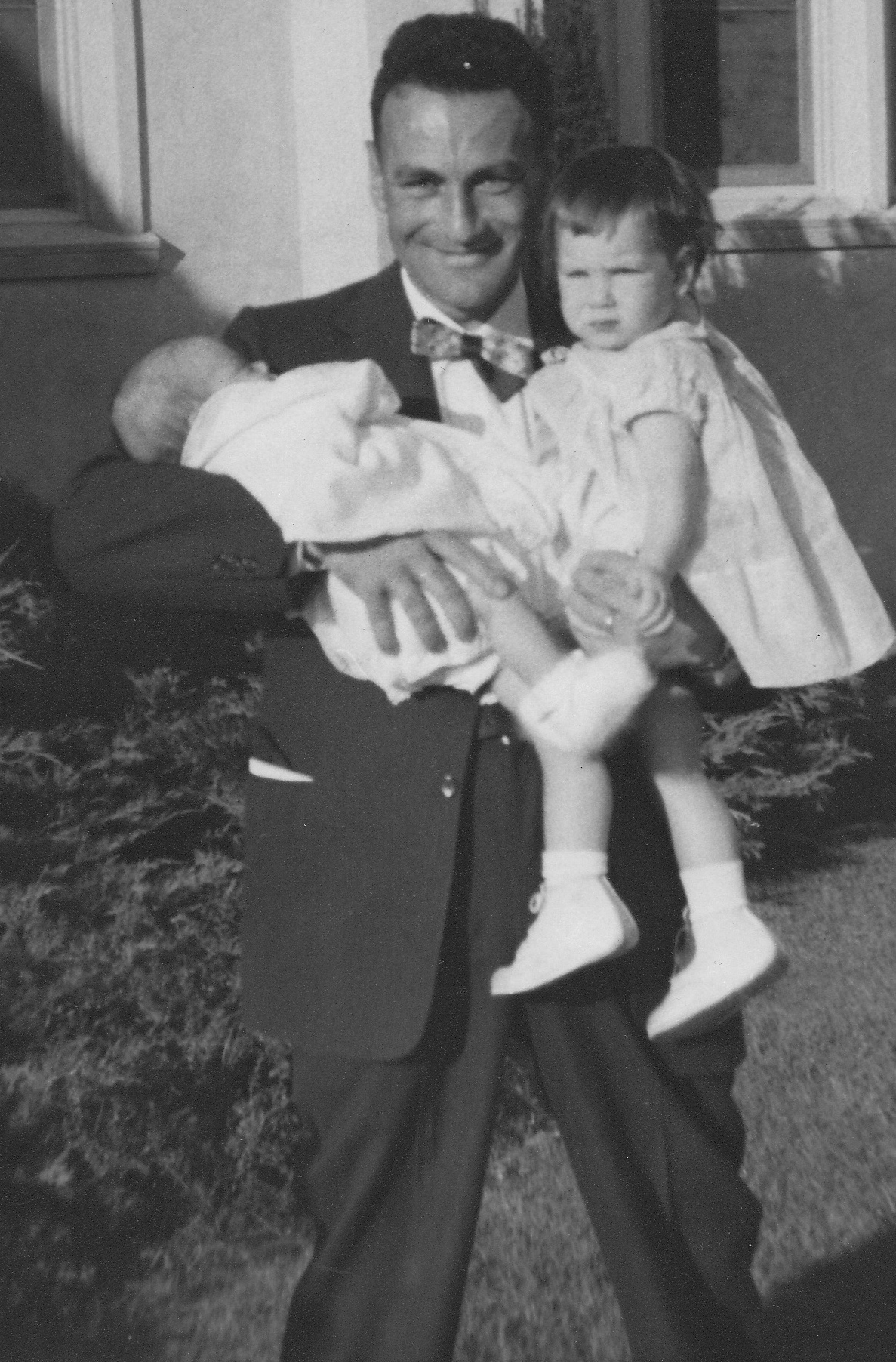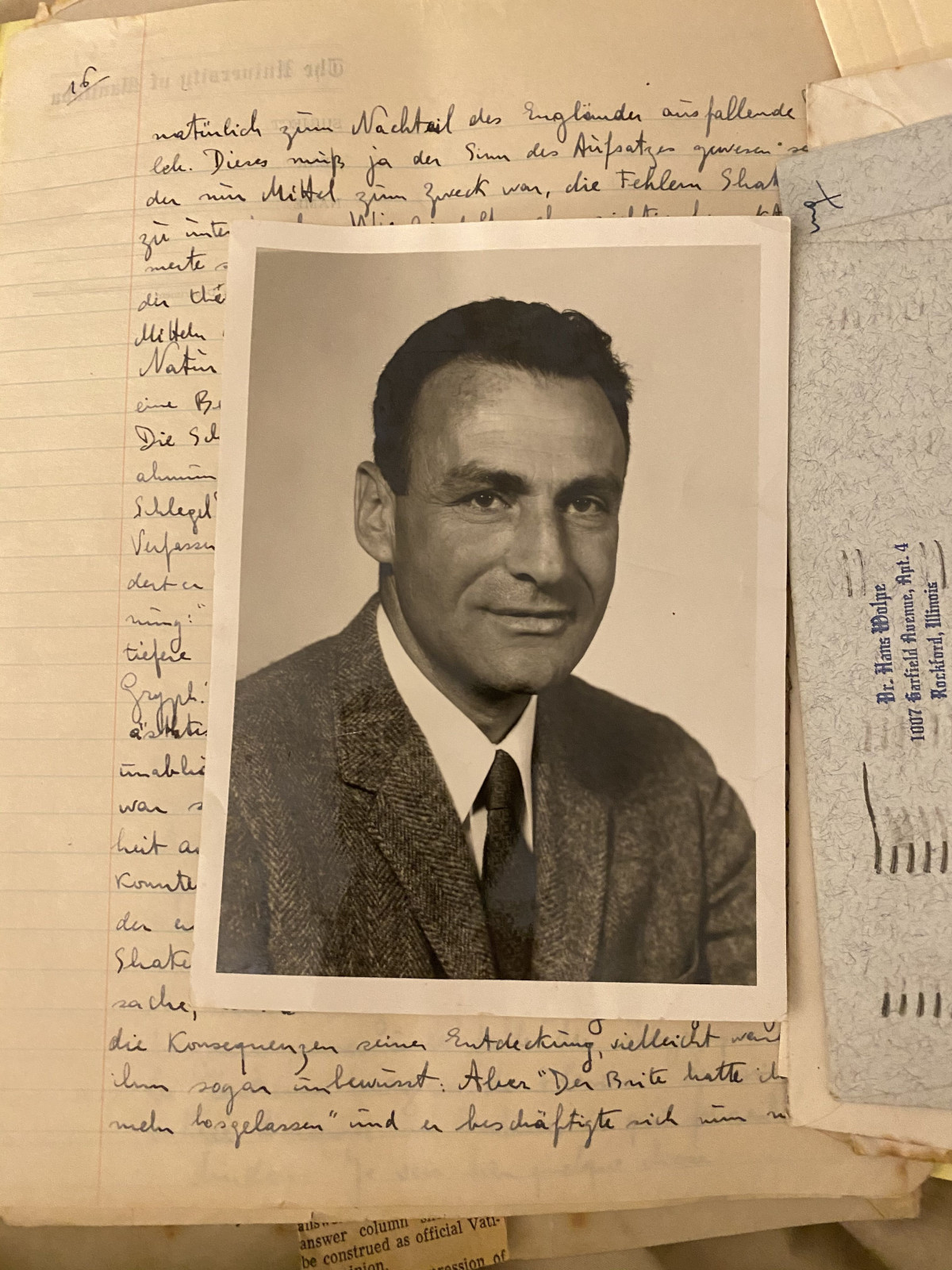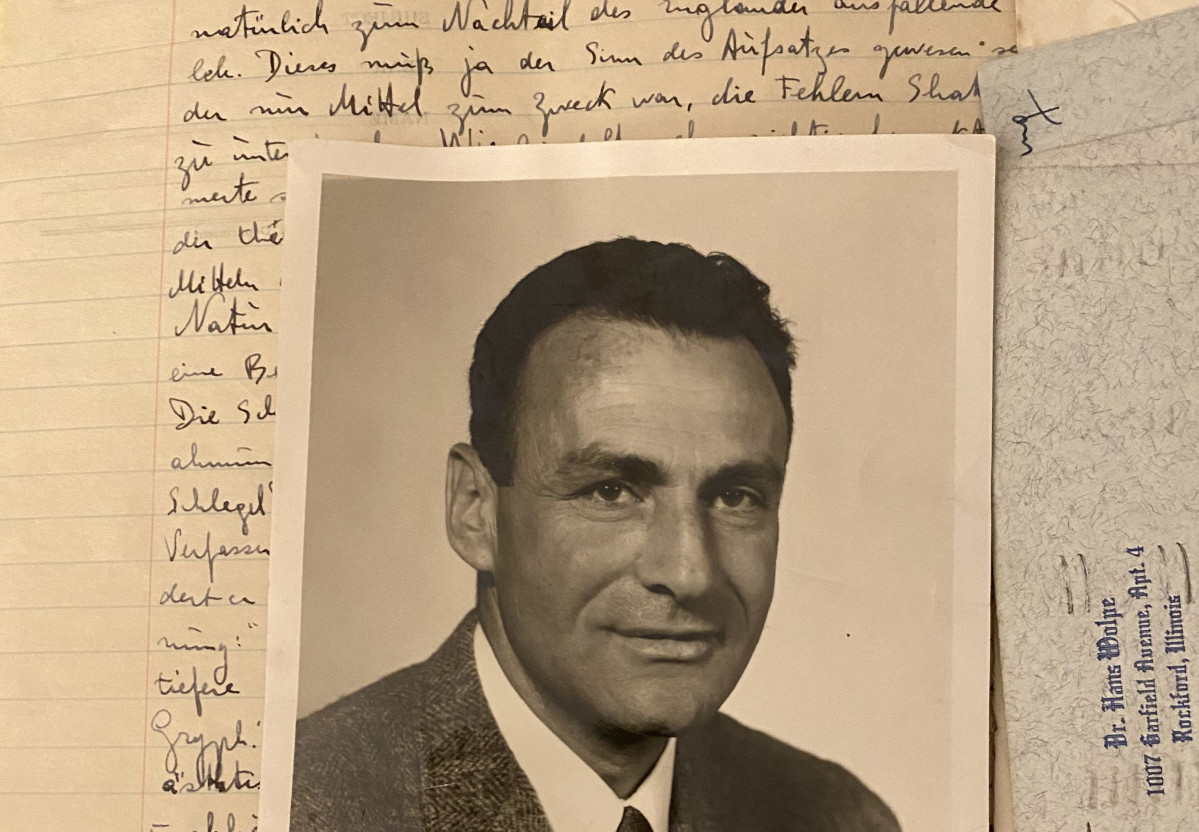
A survivor who joined the Royal Winnipeg Rifles
On International Holocaust Remembrance Day, we remember UM alum Hans Wolpe
January 27 is International Holocaust Remembrance Day, which memorializes the day in 1945 when the Auschwitz-Birkenau concentration camp was liberated by Soviet forces. Among those who did not live to see that day were Hans Wolpe’s family.
Members of his family, including his parents, siblings and grandmother, all perished at Auschwitz. He alone survived. You can see images of his mother and sister and their transport records at the Give Them a Face portrait collection of the Kazerne Dossin Memorial, Museum and Documentation Centre on Holocaust and Human Rights in Mechelen, Belgium, and of his brother in Erinnerungsbuch: ein Verzeichnis der von der nationalsozialistischen Judenverfolgung betroffenen Einwohner der Stadt Oldenburg 1933 – 1945 (“Memorial book: a directory of the inhabitants of the city of Oldenburg affected by Nazi persecution of the Jews 1933-1945”)
Escape
A German Jew born in Berlin and educated in Paris, Hans Wolpe was living with his family in Ostend, Belgium when the Nazis invaded in 1940. He managed to escape, but the rest of his family was rounded up a year later and eventually sent to Poland.
Wolpe moved around the Continent using false papers – sometimes posing as a German and sometimes as a Frenchman – all the while hiding his true identity as a Jew. He worked as a labourer in Germany, then returned to Belgium to seek work in Brussels. Not finding any opportunities there, he headed to France, with the ultimate goal of somehow getting to England.
He wound up in the port city of Calais. Because he could speak several languages, Wolpe was hired as an interpreter by Todt, the engineering organization responsible for building Nazi Germany’s coastal fortifications.
Encountering Canadian forces and the Royal Winnipeg Rifles
When Canadian forces besieged Calais at the end of September in 1944, a 24-hour truce was called to allow 20,000 civilians to evacuate. Instead of joining the other evacuees, Wolpe crossed over to the Canadian lines waving a white flag.
He encountered soldiers from the Royal Winnipeg Rifles, who at first thought he was a spy. However, after convincing the officers of his intentions and proposing to show them the location of German defences, Wolpe was allowed to join the regiment as an unofficial soldier. He was warned that he would not be paid and would not be protected by the Geneva Conventions if he were captured.
‘if he’s not a Canadian, we’ll make him one’
After joining up with the Winnipeg Rifles, he adopted the name “John” to sound less German. “John” Wolpe rapidly gained the respect of his fellow soldiers and his officers had only praise for him. He fought with the regiment for six months as it made its way through France, Belgium and the Netherlands, where he was wounded in the leg by machine gun fire at Deventer.
His injury and subsequent hospitalization in England caused some administrative headaches for the military, since Wolpe wasn’t actually in the army, nor was he a Canadian citizen. In fact, he was not a citizen of any country because the Nazis had revoked the citizenship of all German Jews in 1934.
On hearing about Wolpe’s case, Prime Minister Mackenzie King was reported to have said, “if he’s not a Canadian, we’ll make him one.” Wolpe was allowed to formally join the Canadian Army and gain his citizenship in the fall of 1945. He was sponsored to come to Winnipeg in February 1946 by the General Monash branch of the Royal Canadian Legion.
A remarkable life
Following several months at Deer Lodge Hospital recovering from his injuries, Wolpe enrolled at the University of Manitoba and began his studies in the summer of 1946. He had been assessed by a board of examiners and granted first year standing in Arts and second year standing in French and German.
By all accounts, Hans Wolpe led an active life as a UM student. He gave talks to service clubs around Winnipeg and spoke on radio shows about his war-time experiences. He also wrote poetry for The Manitoban and articles for the Creative Campus, a student literary magazine. His classmates were astonished to learn that not only was he a poet, he was also a pugilist – he boxed at the YMCA and even headlined a bout against a former local boxing champ that drew hundreds of spectators.
Academically, Wolpe was very successful, receiving the Isbister scholarship in his fourth year, and was awarded the Louvre medal at convocation for highest standing in honours French. He received an honours BA degree in languages, and was in the same graduating class as past UM chancellor Arthur Mauro, and Roland Penner, the former attorney general of Manitoba and UM dean of law.
Wolpe went on to Harvard for his doctoral studies in the fall of 1949. After receiving his PhD, he became a visiting professor at Tulane University for a year. He then took up a faculty position at Stanford University, where he married Vera Wendel, one of his students, and they had three children together.
In 1961, Wolpe accepted a professorship in modern languages at Rockford College (now Rockford University) in Illinois. He quickly became a popular instructor and he often entertained his classes by breaking into song in German or French.
Despite surviving so much and living a remarkable life that sometimes sounded like a spy thriller, there would be no Hollywood ending for Hans Wolpe. On May 1, 1963, two years after arriving at Rockford College, the sole surviving member of the Wolpe family took his own life, reportedly despondent over the breakup of his marriage and separation from his children the year prior.
In 2018, the Royal Winnipeg Rifles Museum created a display honouring the life of their former comrade-in-arms.
By coincidence, Wolpe’s youngest daughter, Lisa, learned of the museum’s plans when she contacted the regiment for information about her father. She and her siblings, who all live in California, came to Winnipeg to attend the opening of the exhibit. Lisa, a theatre actor and director, hopes to one day have a movie made about her father’s life.
Explore UM Digital Collections, the UM Libraries, Archives & Special Collections’ rich collection of unique digital materials, including The Manitoban.







